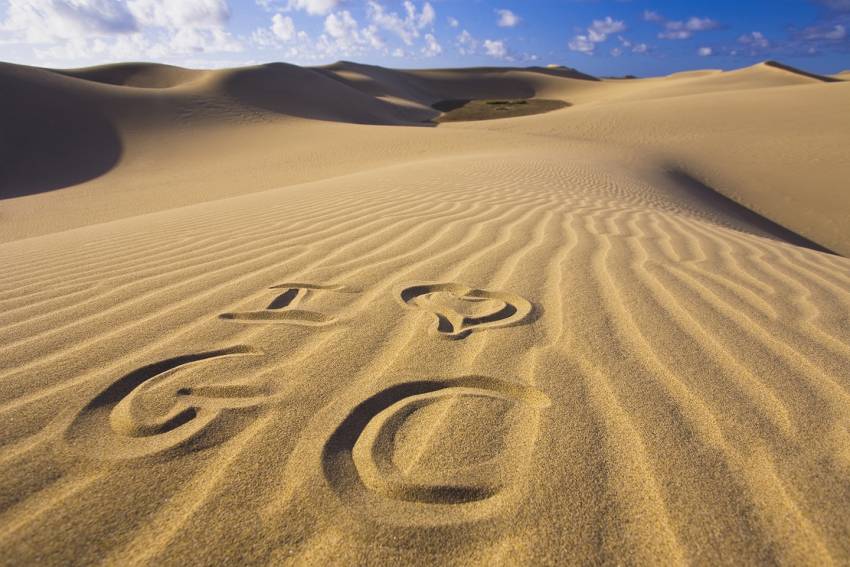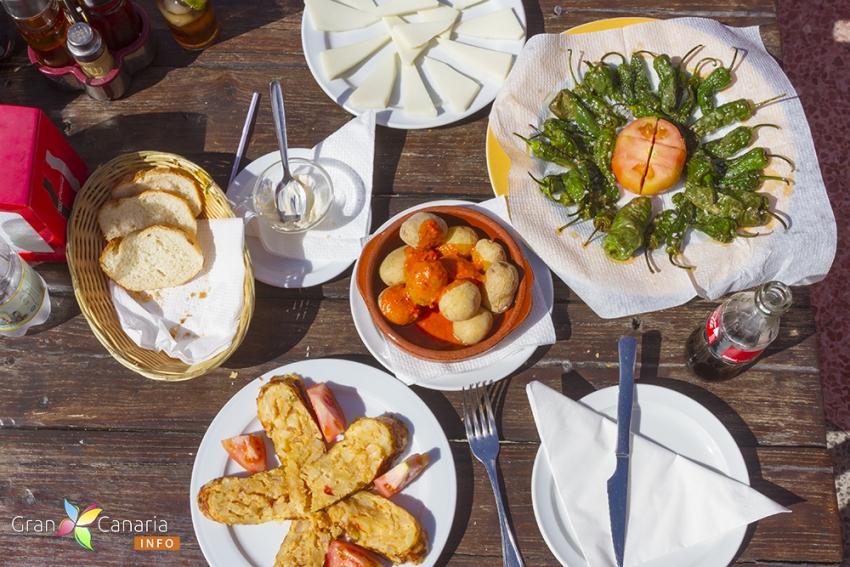Alex Says: For a guide to visiting Las Palmas city (which has it’s own climate) click here.
Spring
Spring in Gran Canaria starts in late February and ends at the beginning of May. It’s when the whole island is green and all the plants flowers. On the resort beaches, you get seven hours of sunshine per day on average, although the north of the island is cloudier (with the exception of the ever-sunny Agaete Valley). In February, temperatures are over 20ºC during the day and can reach 30ºC. They only drop below 18ºC on the coldest nights.
Up in the hills, it gets cold at night and you need layers during the day for when the clouds cover the sun; the temperature varies by 20ºC in an hour.
Spring is the best time to walk in Gran Canaria with the cumbres at their most colourful in April and early May.
Summer
Summer in Gran Canaria runs from mid-May until the end of September. It’s the hottest time of year but rarely gets unbearable thanks to the Trade Winds and ocean breezes. Temperatures reach 30ºC during the day and never drop below 20ºC at night. They can get to over 40ºC in Gran Canaria but only when south winds bring Saharan air.
Summer is ideal if you want to get a tan and spend your time around the pool or on the beach. The water is warm, the sky is blue and the beer is cold.
For active summer holidays, you just have to pack an alarm clock and watch the weather forecast. It gets hot quickly in the Cumbres so start early and finish walks before midday. Never walk when there’s a temperature alert as the hot, dry air dehydrates you within minutes.
Autumn
Gran Canaria has a short autumn in October and November. The chestnut and plane trees up in the Cumbres lose their leaves and the evenings get cooler. You can sit on the beach all day but need a layer in the evenings if you sit outdoors.
Autumn is a great time to be in the Canary Islands. Clear air and little puffy clouds mean great sunsets and it’s cool enough for long walks. The sea is at its warmest (22º to 24ºC).
Walking in Autumn is fantastic up in the north as you get sunshine and lots of colours.
Winter
Winter is Gran Canaria is largely theoretical and only there to make ex-pats feel better about Christmas in the sunshine. It covers December, January and the first half of February. Gran Canaria’s winter climate doesn’t affect the resorts until the sun goes down. You need a layer to sit out in the evenings and on the coldest days (rarely below 20ºC ).
The chances of rain in Gran Canaria peak during winter. It tends to come in two or three day bursts, and then the sun comes back. If you’re unlucky, here’s a guide to rainy day activities in Gran Canaria.
Winter walking in Gran Canaria is fantastic. The island goes green after the first showers and there’s often running water in the barrancos.
Decided when you’re coming to Gran Canaria? Check our monthly weather guides for detailed info.














